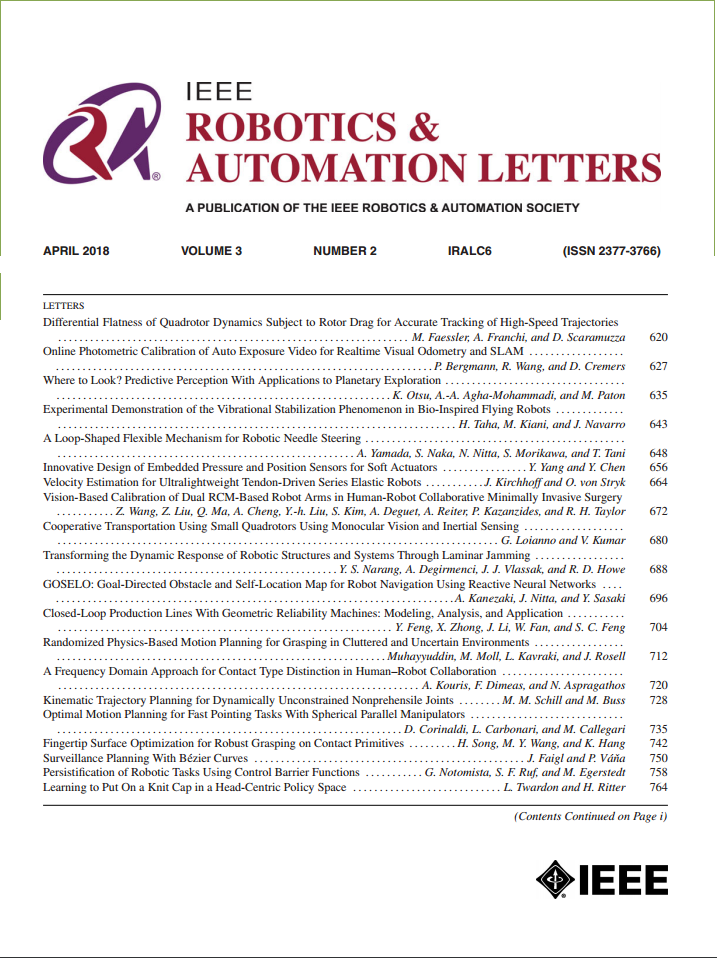变参数系统强化学习策略的模糊集成
IF 4.6
2区 计算机科学
Q2 ROBOTICS
引用次数: 0
摘要
本文提出了一种新的方法来提高具有不同物理参数的机器人系统的强化学习(RL)代理的泛化能力。我们提出了RL策略的模糊集成(FERL),它在系统参数与训练过程中遇到的参数不同的环境中提高了性能。FERL方法选择性地融合对齐策略,根据系统当前参数定制的模糊隶属度确定它们的集体决策。与依赖共享经验进行策略更新的传统集中式训练方法不同,FERL允许独立的代理训练,促进高效的并行化。FERL的有效性通过广泛的实验得到了验证,包括在四旋翼悬挂载荷系统中的实际轨迹跟踪应用。与现有的领域随机化和鲁棒自适应集成对手RL的基准相比,我们的方法在各种具有可变参数的模拟系统中的成功率提高了15.6%。在现实世界的实验中,与单个RL策略相比,我们的方法实现了3D位置RMSE降低30%。结果强调了FERL的鲁棒性和对真实机器人系统的适用性。本文章由计算机程序翻译,如有差异,请以英文原文为准。
Fuzzy Ensembles of Reinforcement Learning Policies for Systems With Variable Parameters
This paper presents a novel approach to improving the generalization capabilities of reinforcement learning (RL) agents for robotic systems with varying physical parameters. We propose the Fuzzy Ensemble of RL policies (FERL), which enhances performance in environments where system parameters differ from those encountered during training. The FERL method selectively fuses aligned policies, determining their collective decision based on fuzzy memberships tailored to the current parameters of the system. Unlike traditional centralized training approaches that rely on shared experiences for policy updates, FERL allows for independent agent training, facilitating efficient parallelization. The effectiveness of FERL is demonstrated through extensive experiments, including a real-world trajectory tracking application in a quadrotor slung-load system. Our method improves the success rates by up to 15.6% across various simulated systems with variable parameters compared to the existing benchmarks of domain randomization and robust adaptive ensemble adversary RL. In the real-world experiments, our method achieves a 30% reduction in 3D position RMSE compared to individual RL policies. The results underscores FERL robustness and applicability to real robotic systems.
求助全文
通过发布文献求助,成功后即可免费获取论文全文。
去求助
来源期刊

IEEE Robotics and Automation Letters
Computer Science-Computer Science Applications
CiteScore
9.60
自引率
15.40%
发文量
1428
期刊介绍:
The scope of this journal is to publish peer-reviewed articles that provide a timely and concise account of innovative research ideas and application results, reporting significant theoretical findings and application case studies in areas of robotics and automation.
 求助内容:
求助内容: 应助结果提醒方式:
应助结果提醒方式:


